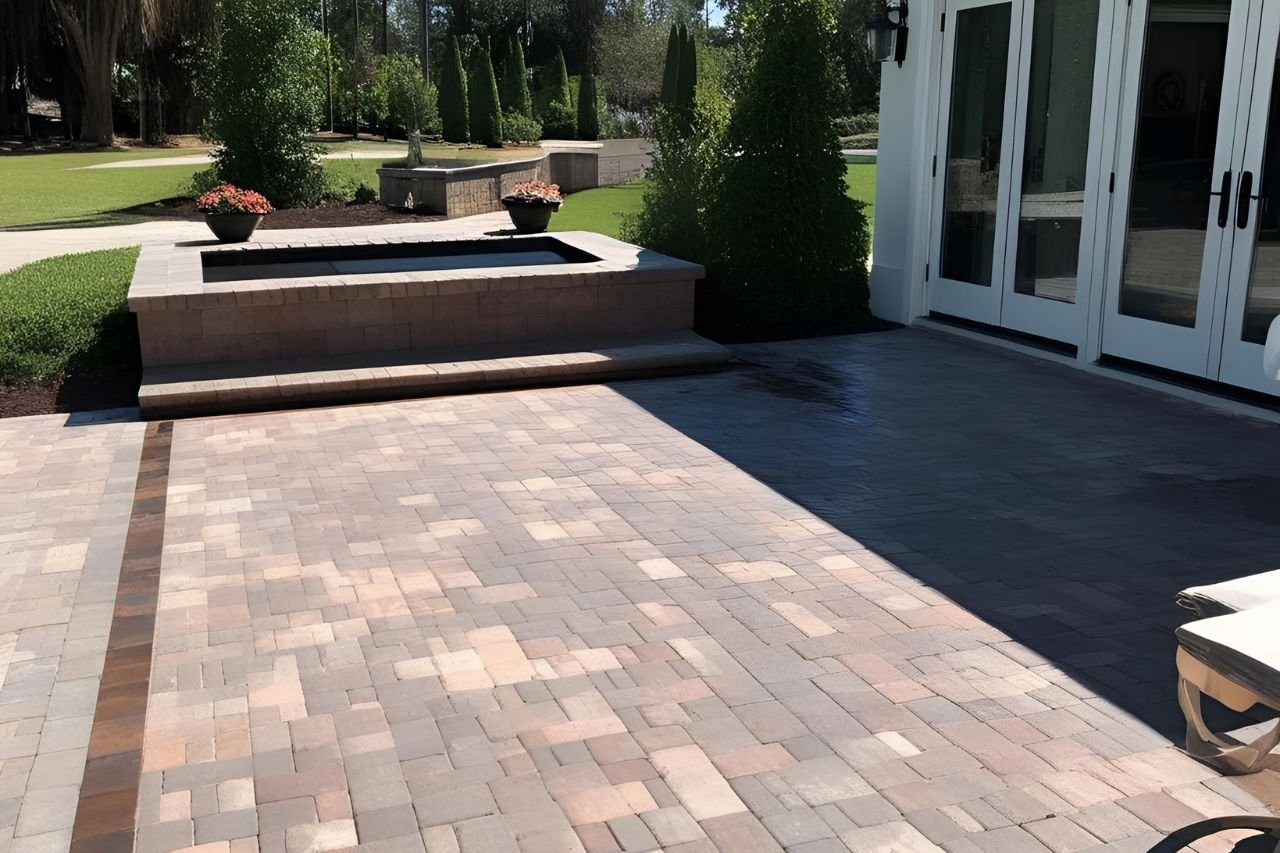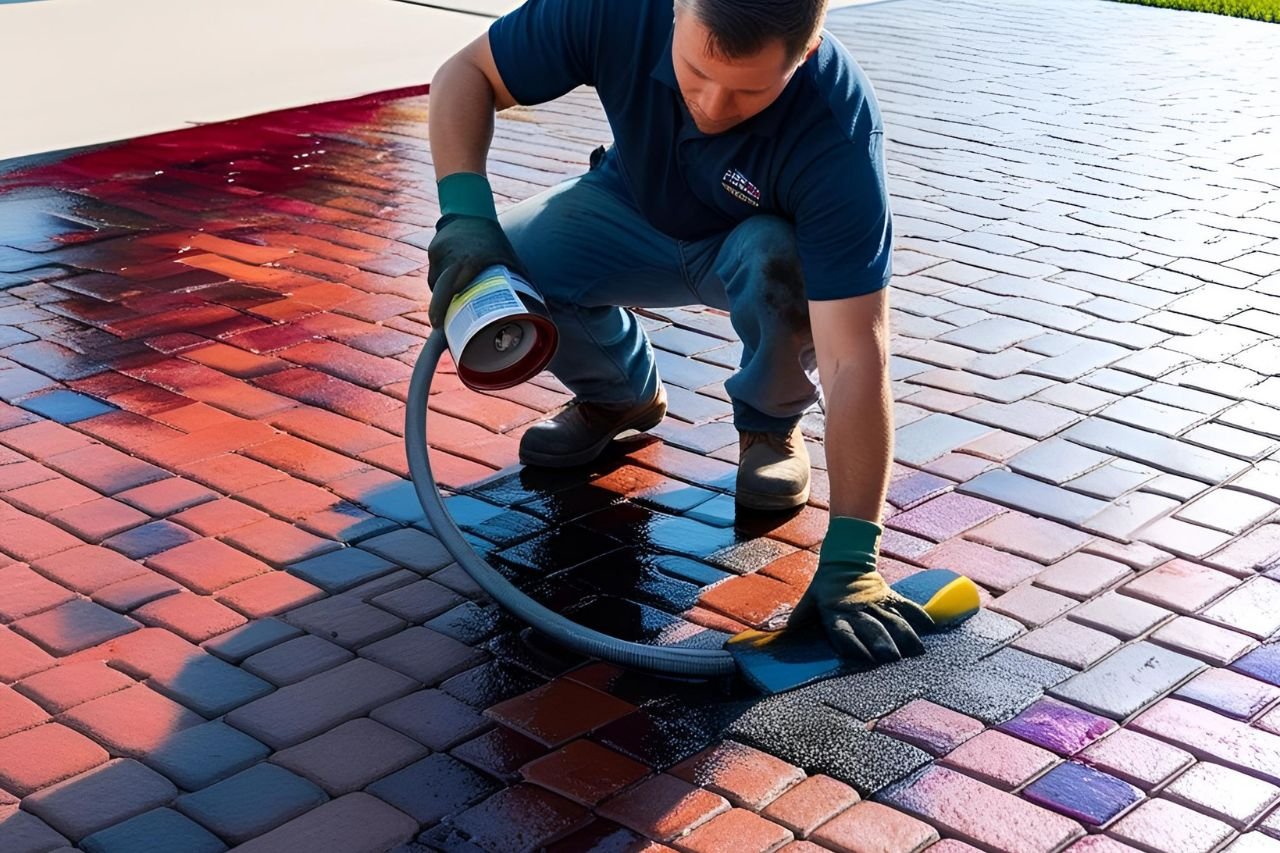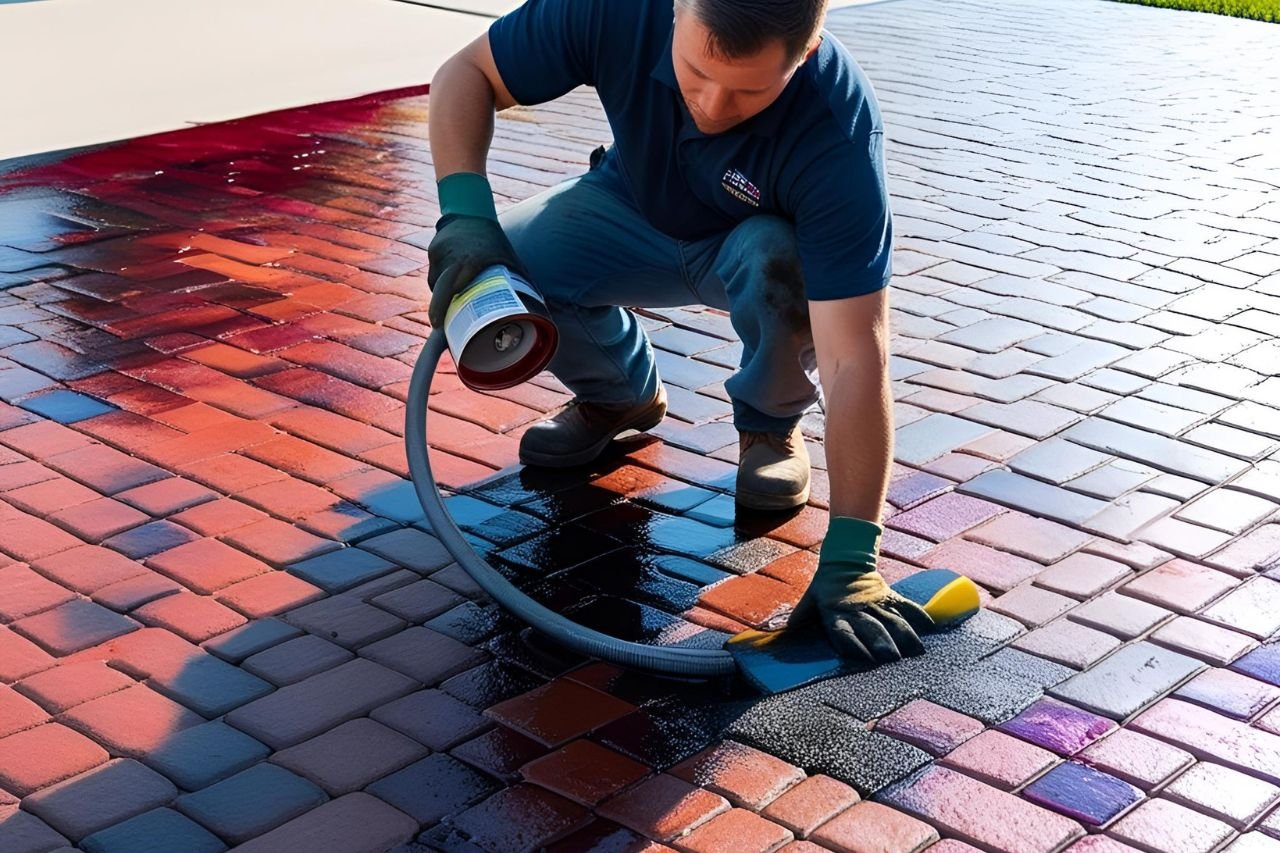The best time of year to seal pavers in Wesley Chapel is during dry months like spring and summer. Dry weather ensures the sealant cures properly, creating a durable layer that protects pavers from moisture, UV rays, and other environmental factors.
Why Timing Matters for Paver Sealing?
Sealing pavers at the right time ensures long-lasting protection and enhances their appearance. Florida’s wet season can disrupt the sealing process, while dry months allow for smooth application and faster curing. Correct timing prevents uneven sealing and protects your surfaces from sun exposure and water damage.
Why Is Dry Weather Important for Sealing Pavers?
Sealants require dry conditions to bond effectively with pavers. Rain or humidity can interfere with curing, leading to uneven surfaces or compromised protection. In Wesley Chapel, spring and summer months provide consistent dry weather, making them the best time for sealing.
Applying sealants during dry periods also reduces the risk of water pooling on pavers, which can degrade unsealed surfaces. For additional insights on sealing benefits, explore why sealing is essential for protecting pavers.
Why Should Sealing Be Avoided During Rainy Months?
Sealing pavers during Florida’s wet season increases the risk of sealant failure due to rain and humidity. These conditions can wash away or dilute the sealant before it cures, leaving surfaces vulnerable to water damage and erosion.
In Wesley Chapel, Florida’s rainy season typically occurs between June and September. Scheduling sealing projects outside of this window prevents delays and ensures optimal results.
What Are the Best Times of Year to Seal Pavers?
The months of March, April, May, and early October are ideal for sealing pavers in Wesley Chapel. These months offer lower humidity levels, fewer rainstorms, and moderate temperatures, ensuring sealants perform as expected.
For homeowners unsure about timing, understanding how often pavers should be resealed helps plan future applications. Learn about how often pavers should be resealed to enjoy maximum benefits.
Does Temperature Affect Sealant Performance?
High temperatures can speed up the curing process, while low temperatures may slow it down. For best results, sealants should be applied when the temperature is between 50°F and 90°F. These conditions allow the sealant to spread evenly and cure effectively.
During Wesley Chapel’s spring and summer months, temperatures consistently fall within this range, making them ideal for sealing outdoor surfaces.
How Does Timing Improve Sealing Results?
Applying sealants during optimal months maximizes their protective qualities. Benefits include:
- Enhanced Protection: Sealants form a stronger layer when applied in dry conditions.
- Improved Longevity: Proper curing ensures pavers stay protected for up to three years.
- Reduced Risks: Sealing at the wrong time can lead to discoloration or uneven application.
What Are the Warning Signs That Pavers Need Sealing?
Pavers often show the following signs when resealing is needed:
- Faded Colors: UV exposure causes natural hues to fade over time.
- Stains and Water Damage: Unsealed surfaces absorb moisture, leading to discoloration.
- Loose Joint Sand: Weak joint sand indicates sealant wear and may invite weed growth.
If these signs are present, sealants should be reapplied to restore appearance and durability. For more details, identify common indicators with signs that pavers need resealing.
How Should Homeowners Prepare for Sealing?
Proper preparation ensures effective sealing results. Steps to follow include:
- Cleaning Pavers: Remove dirt, stains, and debris for a smooth application.
- Checking Weather Forecasts: Ensure no rain is expected during the curing period.
- Scheduling During Dry Months: Choose spring or summer dates for guaranteed dry weather.
Benefits of Seasonal Paver Sealing
| Season | Advantages | Best Months in Florida |
|---|---|---|
| Spring | Consistently dry weather with mild temperatures. | March, April, May |
| Early Fall | Lower humidity and fewer rainstorms. | October |
Frequently Asked Questions
1. Can pavers be sealed during the winter?
Sealing is possible in winter if temperatures stay above 50°F and dry conditions prevail.
2. How long does paver sealing take to cure?
Sealants usually take 24–48 hours to fully cure, depending on weather conditions.
3. Should pavers be sealed immediately after installation?
No, it’s best to wait 3–6 months after installation to allow the pavers to settle before sealing.
4. Is sealing necessary for all paver types?
Yes, sealing benefits concrete, brick, and natural stone pavers by protecting them from wear and enhancing their appearance.
5. How does sealing protect against the elements?
Sealants create a waterproof barrier that prevents pavers from absorbing moisture and fading under UV rays.
Call Us Today
Sealing pavers during the dry months of spring and summer ensures lasting protection and vibrant colors. Scheduling your project at the right time prevents sealant failure and keeps outdoor surfaces in great condition. Visit Paver Installation for professional sealing services in Wesley Chapel tailored to your needs.


